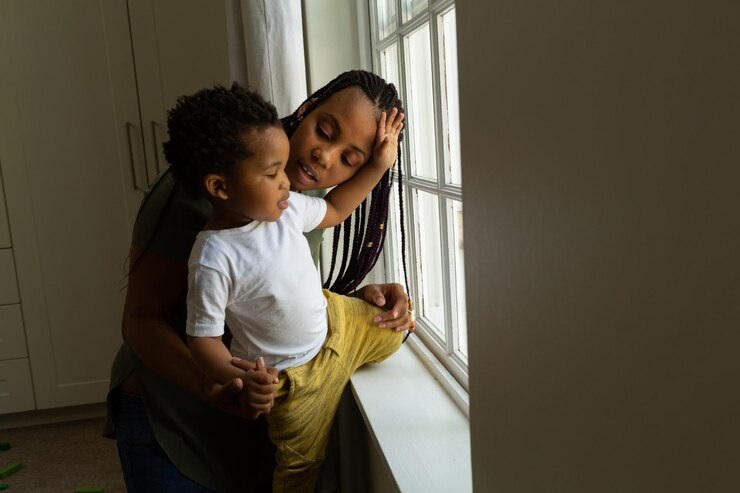When Adaobi gave birth to Chukwuma, she had dreams of a future filled with laughter, school awards, and birthday parties with bouncing castles and small chops. She imagined him as a lawyer like his father, or maybe a brilliant engineer building bridges across the River Niger.

But life had another plan.
By age two, Chukwuma still wasn’t talking. He didn’t answer when called. He preferred to spin the wheels of his toy truck for hours rather than play with other children. Family members said things like:
“Boys are usually slow.”
“He’ll talk when he’s ready.”
“You’re just worrying too much.”
Adaobi wanted to believe them. But deep in her heart, she knew something wasn’t right.
The Diagnosis That Changed Everything
One hot afternoon in Enugu, Adaobi walked into the pediatric neurologist’s office, holding her son close. After a series of questions, the doctor looked up gently and said:
“Your son is on the autism spectrum.”
Adaobi froze. Autism? In Nigeria? She had only heard about it in foreign movies or random online articles. The questions flooded her mind:
- Did I cause this?
- Can he ever talk?
- Will people accept him?
She cried for days. She felt alone. Her husband, Emeka, was supportive but confused. Church members prayed for deliverance. One aunty even suggested it was spiritual. But Adaobi needed more than prayers. She needed answers.
A Mother’s Resolve
Instead of sinking into depression, Adaobi did something different—she fought.
She attended every workshop on special needs she could find in Lagos and Port Harcourt. She joined Facebook groups like Hope4AutismFamilies. She started keeping a daily journal of Chukwuma’s behaviour. She learned about speech therapy, occupational therapy, and sensory processing.
Then one day, something remarkable happened.
Chukwuma, now four, walked to the window during a Harmattan rainstorm and said:
“Mummy, I can hear the rain.”
It wasn’t just the words—it was the connection. For the first time, Adaobi saw light at the end of the tunnel.
From Isolation to Inclusion
At first, neighbours whispered. Children at the playground called Chukwuma “weird.” Even some teachers refused to include him in activities. But Adaobi refused to let ignorance win.
She started a WhatsApp group called “Different, Not Less – Naija Mums.” In weeks, dozens of Nigerian mothers joined, each with their own stories of struggle and courage.
She organized awareness events at churches. She wrote articles for parenting blogs. She began working with a team of local therapists to make early intervention services more accessible in her community.
Chukwuma began to thrive.
He now uses assistive communication devices and attends a school that celebrates neurodiversity. He loves drawing and is obsessed with trains. Every time he finishes a sketch, he runs to Adaobi and says,
“Mummy, come and see! I made a train with three windows!”
The Lesson We All Must Learn
Autism is not a curse. It is not punishment or the result of “village people.” It is a different way of experiencing the world.
Children like Chukwuma may not follow the same timeline as others, but their journey is no less beautiful.
Adaobi once said at a parents’ conference:
“Autism didn’t break my son. It broke me—in the best way. It tore down my assumptions, and rebuilt me into a stronger, more compassionate woman.”
Hope for Every Nigerian Family
If you’re reading this and wondering, “Will my child ever speak? Will he go to school? Will we survive this?”—the answer is yes.
With early support, therapy, and acceptance, your child can thrive.
And like Adaobi, you can become a light for others.
📩 For Trainings:
As a non-profit organization, we provide both virtual and in-person behavioral training for parents and caregivers of children diagnosed with autism. For families who may need more personalized support, we also offer individualized Applied Behavior Analysis (ABA) services. These services focus on promoting socially significant behavior change—supporting skill acquisition, behavior modification, and reduction programs designed to enhance the development, abilities, and independence of children on the autism spectrum.
Email us at:
📬 info@hope4autismfamilies.com
You are not alone. 💙
Disclaimer:
The characters in this story are fictional; however, the events and situations depicted are true to life.
